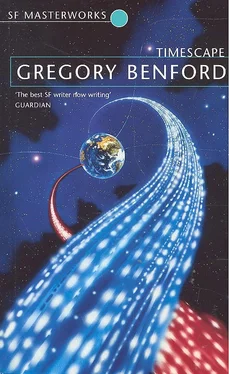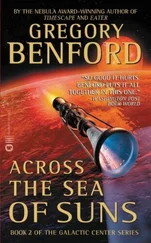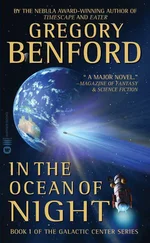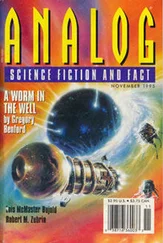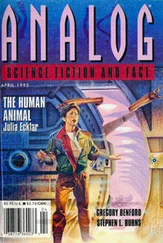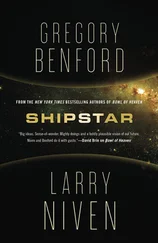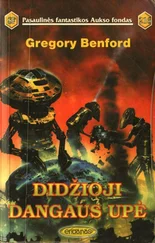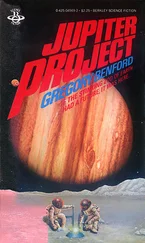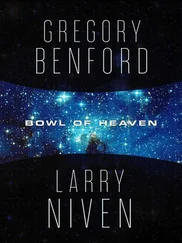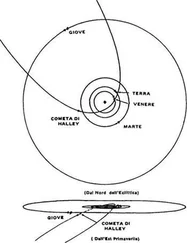• • •
Peterson made his way into the twilight that prevailed inside the restaurant. Or at least it called itself a restaurant; all he could see was people sitting on the floor. Incense curled into his nostrils, making him want to sneeze.
“Ian! Over here!”
Laura’s voice came from somewhere to the left. He felt his way along until he could make her out, sitting on pillows and sucking something milky through a straw. Oriental music drifted through the room. He’d known as soon as he set out that it was a mistake to meet some girl he’d had it off with, simply because she was going through some sort of crisis. The California news and the stir it was causing in the Council had kept him pinned to his desk throughout the night. The technical types were hysterical. Some senior people wrote off that fact, on the grounds that the technical people had been fairly alarmed before, and were proved wrong. This time Peterson was not so sure that that easy logic made sense.
“Hello. I really would have preferred to meet you at my club. I mean, this is quite all right, but—”
“Oh no, Ian, I wanted to see you in a place I knew. Not some stuffy men’s club.”
“It’s really very pleasant, not stuffy at all. We can go round and have a light supper—”
“I wanted to show you where I’m working, though.”
“You work here?” He looked round incredulously.
“It’s my day off, of course. But it’s a job, and a blow for independence!”
“Oh. Independence.”
“Yes, it’s exactly what you told me to do. Remember? I’ve moved out on my parents. Quit Bowes & Bowes, and come to London. And got a job. Next week, I’ll start acting classes.”
“Oh. Oh, that’s very good.”
A waiter materialized out of the gloom. “Would you like to order, sir?”
“Ah, yes. Whisky. And some food, I suppose.”
“They have great curries.”
“Beef, then.”
“I am sorry, sir, we have no meat dishes.”
“No bloody meat?”
“This is a vegetarian restaurant, Ian. Really tasty. It’s fresh, brought in every day. Do try it.”
“Oh, Christ. A biryani, then. Egg.”
“Ian, I want to tell you all about my, my escape from my parents, and my plans. And I want your advice on getting into acting, I’m sure you know many, many people who know how to do it.”
“Not really. I’m in government, you know.”
“Oh, but you must, I’m sure you do. If you’ll just think a bit, I’m sure…” and as she rattled on Peterson saw he had indeed made a mistake. He had felt he needed a break from the tension at the Council center, and Laura’s telephoning had come at precisely the right moment to lure him. He had let the moment dominate his better judgment. Now he had to eat some dreadful meal in a restaurant kept dark because they didn’t want you to see the dirt, and into the bargain he had to be hustled by this shopgirl. Peterson grimaced, certain she wouldn’t see him in this light. Well, at least he was going to get a meal out of it; fuel for the work that was certain to come. And he did need a break from Sir Martin. “Do you have a place nearby?” he asked.
“Yes, in Banbury Road. A closet, nearly, I’m afraid.”
“I’m sure I won’t mind it.” He smiled in the darkness.
CHAPTER THIRTY ONE

MARKHAM SPREAD HIS WORKING PAPERS OUT ON THE narrow little drop tray the airline provided. He had hours of boring Atlantic crossing ahead, jammed in next to the window. Cathy Wickham’s equations swam before him, tensor indices beckoning to be turned this way and that, a dense notation compacted with promise.
“Lunch, sir,” the professionally blank-faced steward muttered. This echo of politeness was to put a gloss on his casual dumping of a cardboard package on the drop table. Markham pried open the wedged boards. A rain of packets thumped down among his papers. They were the now-universal, easy-for-them modular units of food. He unwrapped one and found it to be the obligatory rubber chicken. He bit in reluctantly. Pasty, sour stuff. The only saving grace in this was the absence of plastic packaging, he thought. The bombing of the Saudi fields several years ago had brought an abrupt end to that, and a return to humble cardboard. The pulpy gray surface of the package recalled his boyhood, before hydrocarbons ruled the world. The humanizing side of paper containers was the simple fact that they accepted the touch of a pen, would carry a message; plastic’s sheen rejected the imprint of its temporary users. Idly, he jotted the new quantum field equations on the lunchbox. The elegant epsilons and deltas made their stately march across the UNITED AIRLINES block letters. He chewed absently. Time passed. Markham saw a way to separate the tensor elements into several reduced equations. With descending strokes he paired off field components. He jotted side calculations to check himself. Other passengers moved in the distance. In a while the five new equations lay aslant on the ribbing of cardboard. Three he suspected were old friends: the Einstein equations, with modifications for quantum effects when the length scale became small enough. These were well known. The other two seemed to imply more. A deeper sense of the quantum effects added a fresh term here, a tangle of tensors there. There seemed no way to reduce the system further. Markham tapped idly at them with his pen, frowning.
“Say, give-a!” the man next to him cried out. Markham peered out his window. An immense cloud, sulfurous yellow and veined with orange, hung ahead of them. “First I’ve seen,” the man said excitedly. Markham wondered if the pilot would fly through it. In seconds the window was hazed by strands of cloud and Markham realized that they were already passing through a lower segment of the yellow mass ahead. Fresh weight tugged him down; the plane tilted to rise.
“Right ahead of us, folks, is one of those clouds we’ve been hearing about. I’m taking us over it, for a better look.”
This explanation seemed transparently false to Markham. Pilots didn’t change altitude for a lark. The cloud seemed gravid and somehow more solid than the fluffy white cumulus around it. Threads of a coiling, dark blue wound through its cap, giving it a domed profile.
Markham murmured something and went back to his papers. He copied the new equations off the cardboard and studied them, trying to screen out the thin, high wail of the engines. An engineer had once told him the new generation of superfast engines screamed at unbearable levels. Rockwell International had had to go into cost overrun to blunt the jagged spikes of sound. Six months had been spent to bury the screech in a reassuring bass blanket, so the warm, ticketed bodies carried inside would remain woozy and complacent in the metallic grasp. Well, it didn’t work for him. He had always been noise-sensitive. He found the earplugs in the flap compartment in front of him and inserted them. A blanket sealed him in. The only remnant of the engine scream was an acoustic tremor that came up through his legs and settled in his teeth.
He spent an hour testing the new equations. They gave sensible solutions to limiting-case problems he knew. Taking the scale length small and neglecting the gravitational effects, he got the standard equations of relativistic particle theory. Einstein’s work emerged easily, with a few fluid strokes of the pen. But when Wickham’s equations were taken face on, with no side-stepping onto familiar ground, they became opaque.
He squinted at the short, stubby notation. If he sliced through this knot of terms here, just dropped them—but no, that wasn’t right. There was more than remorseless crank-turning to be done here. The work had to have the right deft feel, to glide forward on its own momentum. Beyond the logical standards, there were aesthetic questions. New developments in physics always gave you, first, a logical structure that was more elegant. Second, once you understood it, the structure was not only elegant, it was simpler. Third, from the structure came consequences that were more complex than before. The ever-present trap in seeking a new path was to invert the steps. It was hard to express this to a philosopher; there was something in the art of mathematics that eluded you, unless you watched for it. Plato had been a great philosopher, and he had decided he wanted the planets to move in sets of circles, all compounded together to give the observed orbits. But as Ptolemy found out, the laws that were needed to give those stacked circles were horrendously complex. That would mean complex laws leading to simple consequences, the wrong way round. So all of Ptolemy’s labors gave forth a theory that clanked and groaned, crystalline spheres grinding around, sprockets and wheels and rachets whirring in a doomed machine.
Читать дальше
